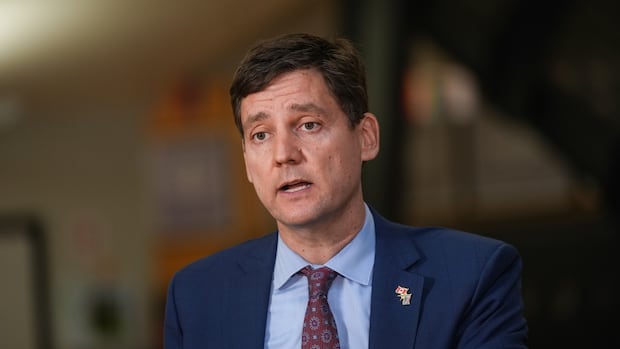B.C. Premier Calls for Reform of Foreign Worker Visa Program
In a recent announcement, British Columbia’s Premier David Eby raised eyebrows by calling for a significant overhaul or even the cancellation of Canada’s temporary foreign worker (TFW) program. He attributed increasing challenges, like homelessness and food bank usage, to flawed immigration policies.
Eby emphasized that the current immigration system seems to be outpacing the ability of communities to provide necessary services, which is concerning for many Canadians. He stated, “We can’t have an immigration system that fills up our homeless shelters and our food banks,” suggesting that the focus should shift towards building infrastructure that supports all Canadians, especially the youth.
Interestingly, Eby’s sentiments align with those of federal Conservative leader Pierre Poilievre, who similarly advocated for scrapping the TFW program. He expressed that relying too heavily on foreign workers has effectively shut young Canadians out of job opportunities.
The TFW program allows Canadian employers to hire foreign workers temporarily when they cannot find local talent. However, Eby believes it has been misused, citing cases of fraud associated with this system.
Recently, a Surrey immigration consultant shared concerns about her firm being unwittingly linked to fraudulent Labour Market Impact Assessments (LMIAs), crucial documents that employers must obtain to hire foreign workers. An LMIA (Labour Market Impact Assessment) is required to demonstrate that a Canadian employer tried to hire locally before seeking foreign talent.
This consultant pointed out that fraud has been prevalent, with scammers selling fake LMIAs to foreign workers who may believe they are securing a legitimate pathway to work in Canada. Notably, many individuals have paid exorbitant amounts for these counterfeit documents.
While some officials argue for the complete dissolution of the TFW program, others, like consultant Neera Agnihotri, stress that it plays a vital role by allowing certain businesses to fill jobs that many Canadians are unwilling to take. For instance, most Canadians may not be keen on working in agriculture or in roles like those at Tim Hortons. Agnihotri emphasized, “Canada lives and thrives on immigration,” noting the critical need for foreign workers in various sectors.
In the agricultural sector specifically, David Mutz, who runs Berry Haven Farm in Abbotsford, stated that temporary foreign workers are “an integral part” of the workforce. Both Eby and Poilievre seemed to support the idea of maintaining a separate program for farmers to continue hiring seasonal workers from abroad.
Canada does have a distinct stream for farm workers called the Seasonal Agricultural Worker Program (SAWP). This program allows employers to bring in seasonal workers from participating countries, such as Mexico and certain Caribbean nations. Mutz remarked that this program does not face the same issues with fraud and could serve as a model for reforming the TFW program.
The Canadian Federation for Independent Business has voiced its concerns as well, arguing that while reforms may be warranted, entirely abolishing the TFW program would jeopardize many small businesses, especially in rural regions that rely on this workforce for essential tasks.
Critics of the program’s proposed cancellation highlight that temporary foreign workers are not the principal cause of rising youth unemployment, a viewpoint echoed by economists who believe this is a complex issue not easily attributed to immigration policy.
With the ongoing discussions about immigration reform, B.C. Conservative leader John Rustad proposed that the province develop its immigration program to better meet the needs of local industries requiring foreign labour.
As conversations around immigration and job markets evolve, it’s essential to understand the significant role these programs play in Canada’s economy. If you’re considering job opportunities in Canada, you’ll want to check out VisaJobsCanada.com. Our listings focus specifically on Canadian jobs that offer visa sponsorship to international applicants, ensuring that you have the support you need as you explore working in Canada.
Amidst these discussions, Prime Minister Mark Carney mentioned that the government is currently reviewing the TFW program along with the overall immigration system, aiming to recalibrate the balance between immigration and the population’s needs.
What do you think?
Have a question about this topic or your own plans to move to Canada? Scroll down and leave a comment. We’d love to hear from you.

